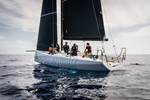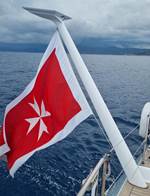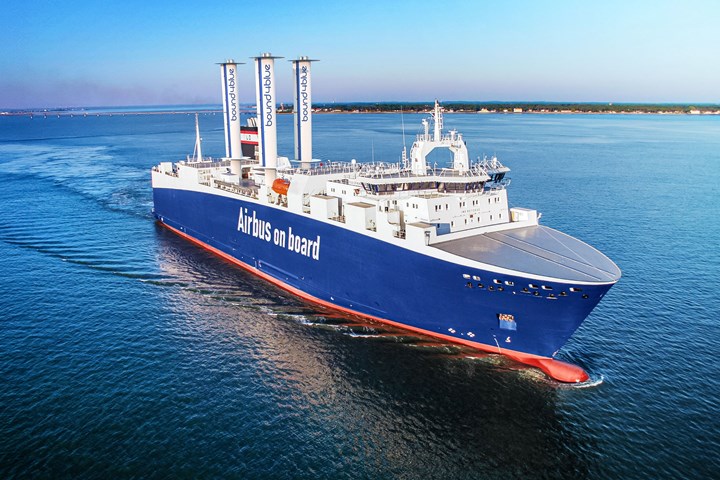Airbus to install fuel-saving sails for maritime operations
The bound4blue eSail, currently built in part from composites, will further decarbonize Airbus’ transportation of A320 subassemblies from Europe to the U.S.
Airbus (Toulouse, France) is equipping one of the vessels it uses to transport aircraft subassemblies, chartered from shipowner Louis Dreyfus Armateurs (Suresne Cedex, France), with a wind-assisted propulsion technology that captures wind energy to generate thrust, delivering savings in fuel consumption and CO2 emissions.
The eSail, developed by the Spain-based firm bound4blue (Barcelona, Spain), is said to create as much as six to seven times more lift than a conventional rigid sail. It consists of a sail-like vertical surface and an electric-powered air suction system that helps the airflow to re-adhere to the sail, generating additional lift and thereby reducing the load on the ship’s main engines. Bound4blue reports that its eSails are currently built in part from composite materials, specifically the superior winglet.
Three 22-meter-high eSails will be fitted to the Ville de Bordeaux ahead of a 6-month performance monitoring period starting early 2024. The Ro-Ro ship regularly ferries A320 Family subassemblies from Europe to Mobile, Ala., U.S. for final assembly.
“We at Airbus have been studying wind-assisted technologies as a potential energy source for our maritime operations for many years,” Nicolas Chrétien, head of sustainability and environment at Airbus, says. “As we embark on an exciting journey with our partners Louis Dreyfus Armateurs and bound4blue, we reaffirm our ambition to explore all innovation pathways to develop more sustainable maritime solutions and further reduce the carbon footprint of our industrial operations. This technology looks promising and we are eager to start testing it in real conditions by the end of the year.”
Fitting the eSails on the Ville de Bordeaux supports Airbus’ commitment to halve CO2 emissions from its maritime operations by 2030. According to bound4blue estimations, these eSails could deliver fuel and CO2 emissions savings of up to 560 tons and 1,800 tons respectively for this ship annually.
According to Mathieu Muzeau, transport and logistic general manager at Louis Dreyfus Armateurs, the company will be identifying and testing “various forms of wind-assisted propulsion, including rotating vertical cylinders, flexible sails, rigid sails and wings.”
The installation of eSails is co-funded by the European Union.
Related Content
-
Revisiting the OceanGate Titan disaster
A year has passed since the tragic loss of the Titan submersible that claimed the lives of five people. What lessons have been learned from the disaster?
-
Alliance for European Flax-Linen and Hemp reports increasing flax fiber adoption in marine
The natural fiber is increasing traction across several marine applications, including in projects by Greenboats, Northern Light Composites, the Beneteau Group and others.
-
Al Seer Marine, Abu Dhabi Maritime unveil world’s largest 3D-printed boat
Holding the new Guinness World Record at 11.98 meters, the 3D-printed composite water taxi used a CEAD Flexbot to print two hulls in less than 12 days.
















